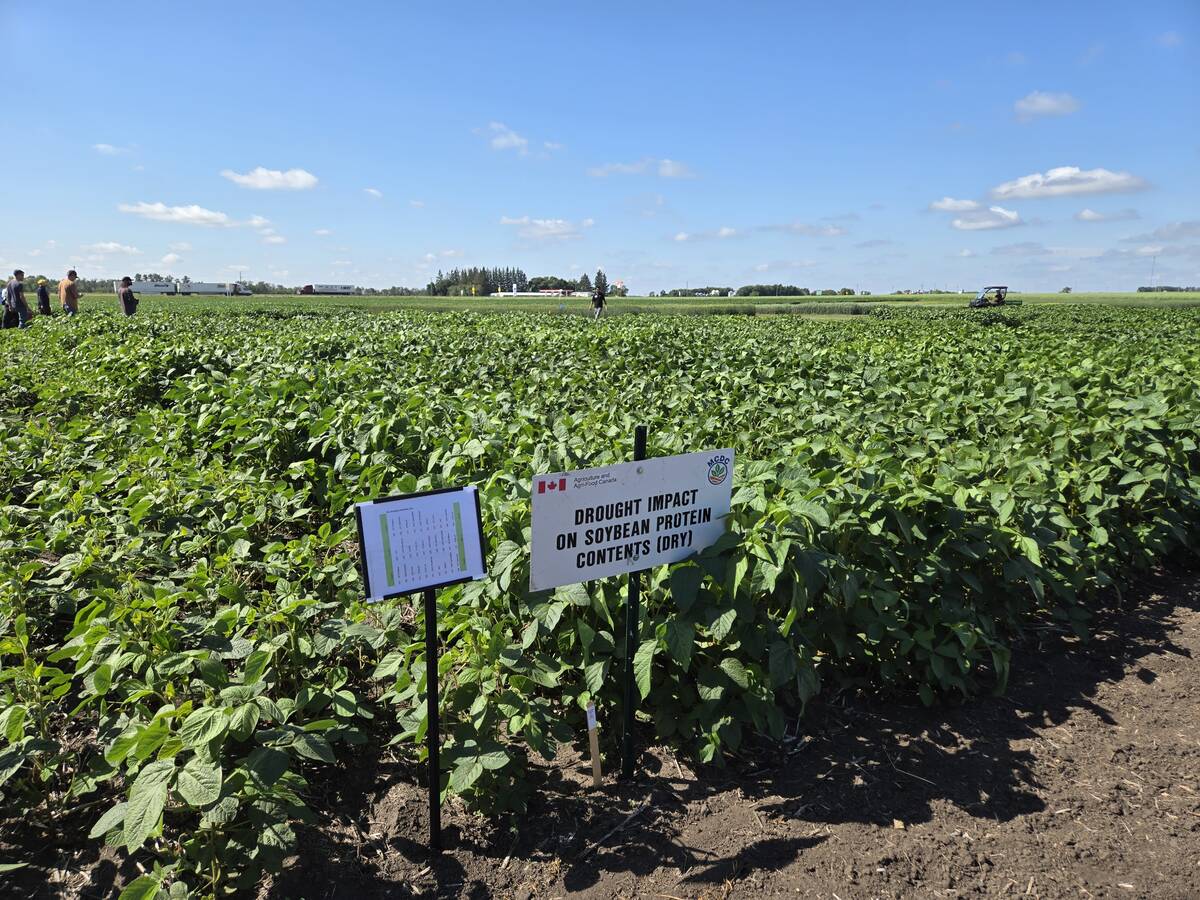One biodiesel megaproject might be calling it quits in Alberta, but two others are alive and kicking.
Reports out of the biodiesel industry indicate a consortium led by Riverstone Holdings that planned to build a $400 million biorefinery near Innisfail, Alta., may have shelved the project.
The biorefinery would have included a canola crushing facility that would feed a 379 million litre biodiesel plant. A similar sized ethanol facility would also be built on the site.
Riverstone refused to confirm or deny the reports.
However, two other firms say their plans to build large biodiesel facilities in the province remain intact and are gathering steam.
Read Also

Carberry field day looks for agriculture solutions
Manitoba farmers explored research solutions for resilient crops, perpetual agronomic issues and new kinds of agricultural products at a field day at the Manitoba Crop Diversification Centre in Carberry on Aug. 6.
BioStreet has procured land in Vegreville for its $210 million biodiesel plant that will produce 225 million litres per year. The facility will include a canola crushing plant capable of chewing through 500,000 tonnes of the oilseed annually.
The company and its engineering consultants, Trimark Engineering, have completed the conceptual development, pre-engineering feasibility, project scope and cost estimates, a technology and process assessment and the design basis memorandum.
“As far as we know, we’re the furthest (developed) large-scale biodiesel project in Canada,” said BioStreet vice-president Angela Reid.
Canadian Bioenergy Corp., a leading supplier of biodiesel, is also developing a big project in Alberta.
The Vancouver firm is in negotiations with Archer Daniels Midland to jointly build and operate a 265 million litre plant at the site of ADM’s canola crushing facility in Lloyd-minster.
Canadian Bioenergy originally planned to operate a 225 million litre stand-alone facility in Fort Saskatchewan, Alta. by June 2009, but the economic downturn forced the company to explore a joint venture with ADM.
A spokesperson for Canadian Bioenergy said the two companies are conducting a project feasibility assessment.
The goal is to start building the Lloydminster plant before the end of 2009 and to have the facility operational by Jan. 1, 2011.
BioStreet is also hoping to produce biodiesel by 2011, a year before the federal biodiesel mandate is scheduled to be implemented.
Despite the similar timelines, Reid contends the BioStreet project is out in front of the Canadian Bioenergy project because it was doing its feasibility study three years ago.
BioStreet’s original plan called for a 175 million litre plant to be opened in late 2009. If it had stuck to that plan, the company would have been in the middle of construction when the recession hit.
“I’m glad that we weren’t halfway through building our project when that happened or it might have been a scary situation for us,” Reid said.
JoAnne Buth, president of the Canola Council of Canada, is disappointed by how slow things seem to be evolving in the biodiesel business.
“There has been a lot of announcements but there has not been a lot of building,” she said during a recent speech delivered at the opening of Bayer CropScience’s new research facility near Saskatoon.
Reid said construction has been delayed by the onset of the global recession and by resistance from oil companies.
“They were either trying to push the (mandate) dates back or not have them come at all,” she said.
Alberta is set to release the details of its mandate in September, which calls for two percent biodiesel content in the province’s diesel supply starting July 31, 2010.
Once the details of the Alberta program are in place, BioStreet will be able to negotiate supply contracts with the oil companies, which are responsible for meeting the mandate.
That in turn will trigger discussions with investors, who have been waiting for important details to be ironed out, such as the design basis memorandum and end-use agreements.
“Those are all of the risks we need to remove before we’re able to really have serious discussions with the institutional investors and the venture capitalists,” Reid said.
Most of the funding to date has come from government grants and BioStreet’s 200 private shareholders.
The company still has to raise more than $200 million of the $210 million price tag for the project.
Some of the funding will be used to provide deposits to its technology partners so they can release their blueprints. DeSmet Ballestra is providing the canola crushing technology and BDI Biodiesel will provide the refining technology.
Environmental permits submitted to the provincial and federal governments are expected to be in place by the end of August. The next phases of the project will be to complete the front-end and detailed engineering designs.
Reid said the company will have its own in-house canola procurement team once the crushing plant is operational.















